|
CONSTRUCTION
STORY OF
SCRATCHBUILT
STREET ROD
|
 |
Building Period: 30 March 1999 - 30 June 1999
PART 4
THE BODY - 1
Now, some start for the body construction.
Following are the steps in forming the door skin. First, the blanks are cut from 0.2 mm brass sheet.
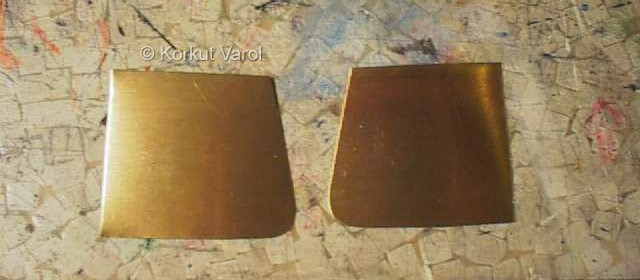
For long straight bends, I use a hand-made tool as shown. The first bend was made as shown.
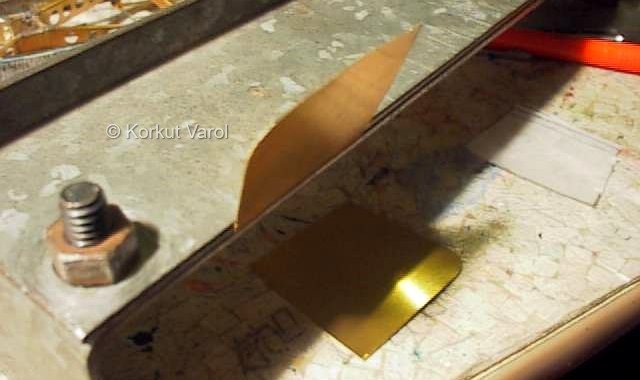
Follows the second and third bends in the same manner.
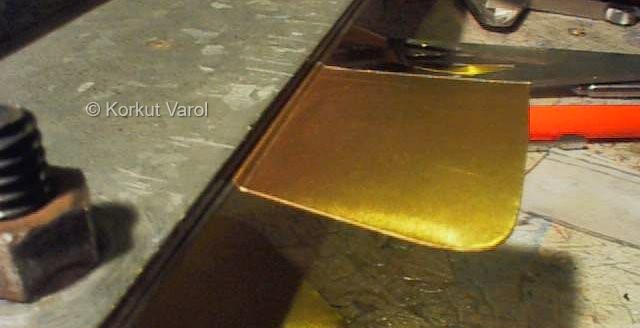
And, finally, the curvature of the top section was given by smooth bending with pliers.
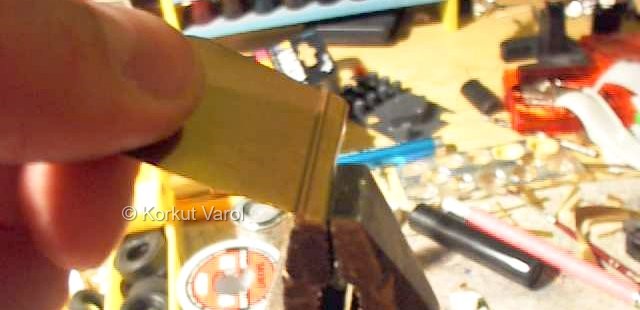
The floorpan was cut and bent as shown...
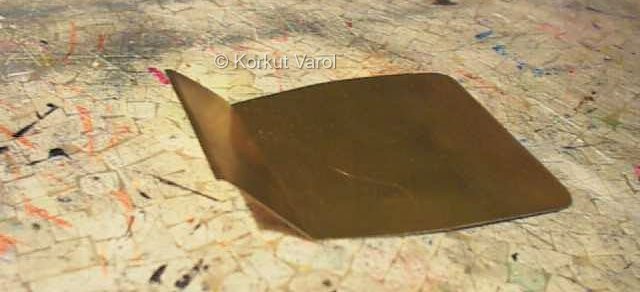
...and soldered temporarily on the frame.
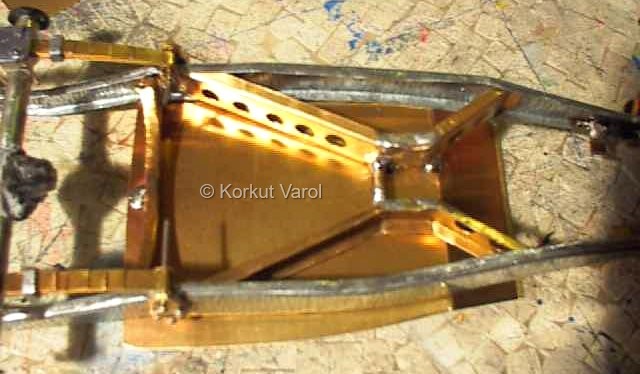
The boot skin was cut and bent to profile by hand.
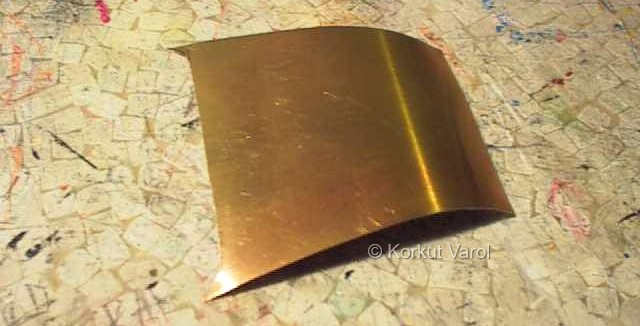
The cockpit back was also cut and bent (shown halfway during bending)
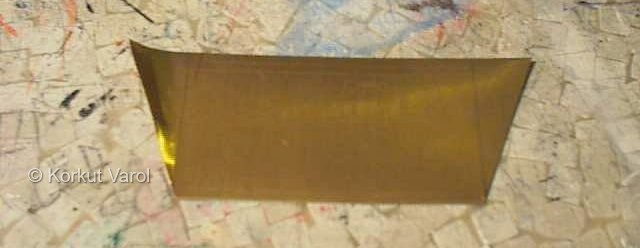
The edges that will be joined are pre-soldered at their meeting ends.
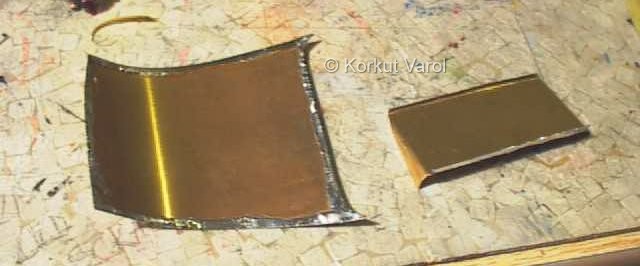
The metal was too big and heat absorbent, so soldering iron did not work here. I used a small torch to join the parts together.
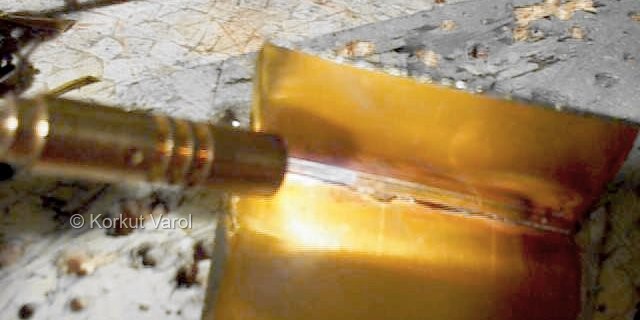
The boot and the cockpit rear are joined first, then they are soldered to the floorpan as shown.
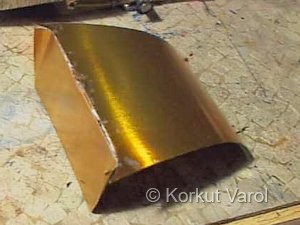

The 'B-post' region was formed by
bending.
To bend it smoothly, the to-be-bent section was cut and then the body
profile
given. To smoothen the surface, both the inside and outside of the bent
part was covered with solder and then ground smooth with Dremel
moto-tool.
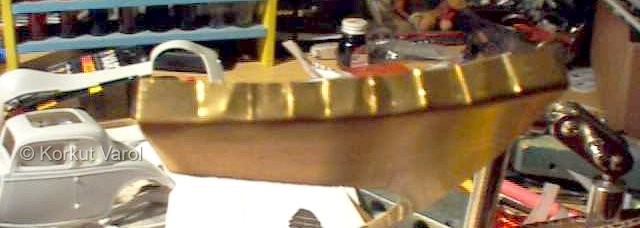
The boot top and side panels were
point-soldered
to hold the parts together while soldering. Note that the matching
edges
were slightly bent to form a pre-curvature.
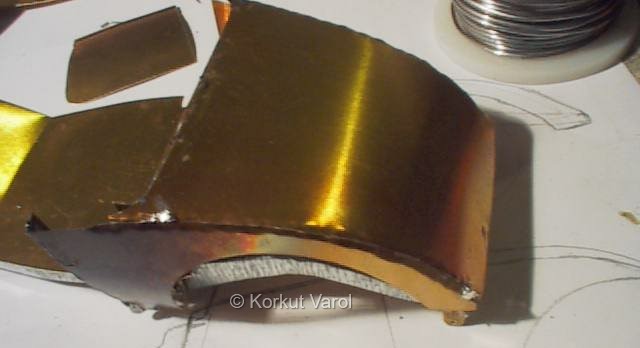
The parts were joined by a fillet
solder
from the inside. Generous solder was applied so that there would be
enough
metal while grinding to shape.
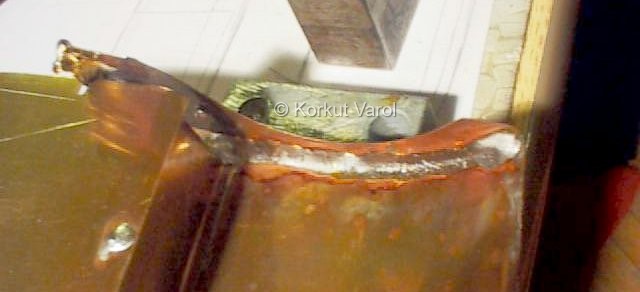
Here you see the Dremel in action of giving the proper radius to the edge.
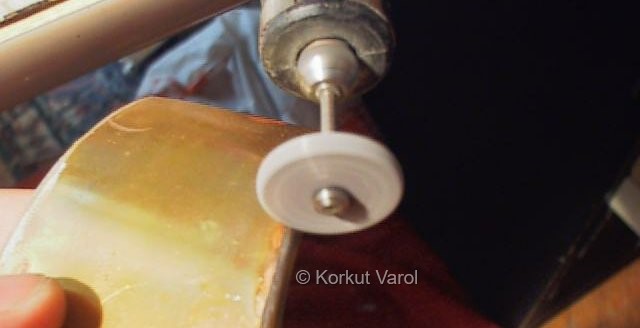
A close-up shows how the solder is exposed after grinding.
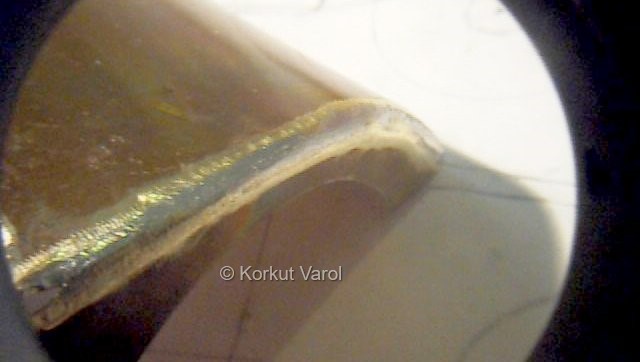
 .........................
.........................